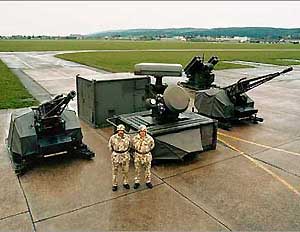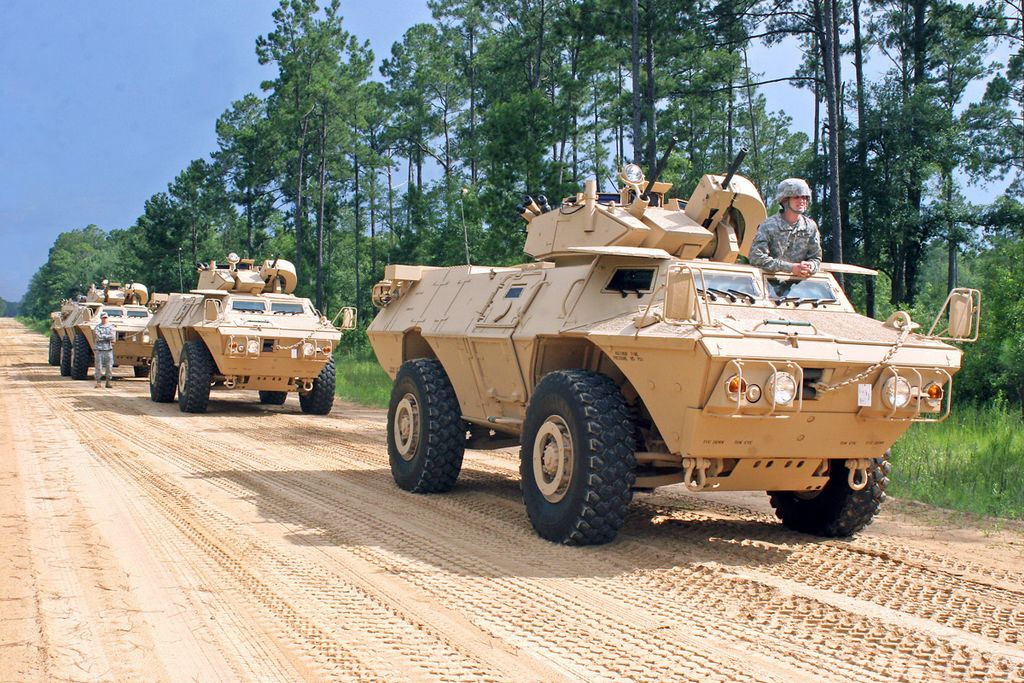- Reaction score
- 8,472
- Points
- 1,160
Let's remember this is Force 2025, not Force 2040jk jk
A GBAD capability I think will be a given, regardless of the deployment. Whoever rules the air, rules the war. While you may not be able to hold ground with aircraft, you can sure bomb the hell out of whoever is holding the ground & limit their ability to do anything. (Move, Communicate, Shoot? Nope.)
Just my own opinion here... but GBAD for low to medium level air threats is essential for any deploying forces, from any country. Everybody should be able to make sure the skies above them are clear of low flying threats.
Armed drones, loitering munitions/drones, helicopters, low flying aircraft, etc etc - can all be engaged pretty quickly, without having to coordinate a bunch of whiz-bang stuff. (Coordination is obviously necessary, but in this context I am talking about the tactical fight. I.e., enemy helicopter transporting enemy troops, seen by friendly forces, and directly shot down by friendly forces.)
Where we should coordinate with our allies is in regards to long-range precision fires, strategic level ISR assets, EW assets, etc. Why spend generous money on a decent EW system if, when we deploy, an advanced EW system is to be provided by someone else?
Why deploy 6 MLRS when the US has already deployed 60 in theatre, and has that base covered?
Why deploy 2 Heron-type UAV's when NATO/US/Allies are deploying armed UAV's with better cameras, higher operating altitudes, and a bunch of fancy EW gear?
Why buy 'the radar part' of Iron Dome when the alliance will already have the latest Iron Dome version, complete with the part that actually shoots down the incoming threat. Along with the latest Patriot systems, sea-cannister based SM-2, ESSM, perhaps SM-6, etc.
Do we need to be able to operate independently of a coalition? Yes.
Even in a coalition environment, are countries guaranteed to show up with what the coalition had agreed was their responsibility? No.
Will that leave us with some potential massive & deadly capability gaps, if Country X shows up without the burgers everybody thought they were responsible for bringing? Yes.
Is my 'random thought' of sorts perfect? No. Reasonable? Perhaps. Doable? Yes.
If we look to NORAD as an example of the kind of alliance planning I'm talking about, it is clearly stated that Canada must provide X-number of aircraft to the NORAD mission, with Y available at any given time in case of an emergency. We provide the capability we agreed to. Whatever other ambitions we have, we know that our NORAD commitment must be provided for first & foremost.
If NATO said 'Canada is required to contribute 1 squadron of utility helicopters, with X number of aircraft available in the case of an emergency'...or... 'Canada is required to contribute 20 MRLS-type vehicles and provide it's own GBAD cover' - it would give the Army a clear objective to plan for, which would guide our purchases, force structure, other capabilities we'd want, etc.
I agree with G2G that it is a matter of professionalism, that the Army be able to provide a wide range of capabilities to the government when the government is looking at options. However, given the size of the country and the size of the armed forces/population, we literally can't afford to be all things, all the time. (A modern ATGM, or GBAD capability, would be easy as hell to acquire if someone showed some leadership and pushed it through. It wouldn't break the bank. And should be acquired regardless.)
Capable of providing a wide range of capabilities? Yes. But we can't excel at everything. We should consult with our allies, find out what would be most useful or valued in a coalition fight, and strive to excel at that thing.
Again, just my 0.02 -- just in the context of what is doable by 2025.
OK - Following G2G's lead: Force 2050. Cheers.






:quality(70)/arc-anglerfish-arc2-prod-mco.s3.amazonaws.com/public/YW2KQP4HNFEM7CXTIXBTMITDSA.jpg)




